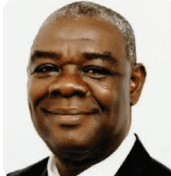Savings and Loans companies have been urged to take advantage of the opportunities presented by COVID-19 and leverage technology more aggressively to serve their clients and deepen financial inclusion.
Pierre Frank Laporte, the World Bank’s Country Director, noted that it was good that the savings and loans companies were embracing digitization and that digitization was key to innovation.
“Savings and loans companies can contribute to the achievement of financial inclusion using your branch network and digitization. Through this, it reflects on how S&Ls can continue to support SMEs and those at the base of the pyramid,” he stated.
Speaking as the guest of honour at the 10th edition of the Ghana Association of Savings and Loans Companies (GHASALC)’s annual general meeting (AGM), he urged the companies to continue to meet regulatory requirements and remain sustainable and resilient while continuing to refine their business models and strategies.
He also commended the association and its members for the role they were playing in the financial sector as well as the donations they made to support the fight of COVID-19. He said the World Bank would continue to support the government in its transformation agenda, having already supported same with US$150 million.
He urged the Bank of Ghana to continue to strengthen the regulatory and supervisory role for the SDIs.
Held on the on the theme ‘Building Synergies for Growth’, the meeting was attended by the 25 savings and loans companies operating in Ghana.
Chairman of the Association, Kwaku Duah Berchie, who is also the Managing Director of Golden Link Savings and Loans, asked members of the association to see each other as partner instead of competitors and that there were a lot of opportunities the companies could take advantage of if they collaborate and share experiences.
He said the savings and loans companies should also embrace the use of technology. He commended the various stakeholders such as Bank of Ghana, CGAP of the World Bank Group, GIZ of the German Government and the Media for their support to the Savings and Loans Industry.
“COVID-19 has come to change the way we do business. Let us embrace the ‘new normal’ and innovate as we build synergies. Let us continue to ensure that all the health protocols are adhered to at our respective outlets and also, our engagement with the public. Let us be carriers of hope, not despair.”
Executive Secretary, Tweneboah Kodua Boakye, said the members of the association play critical roles in the national agenda on financial inclusion. Collectively, the members of the association granted about 7.926 million number of loans valued at about GH¢3.212 billion in 2018. This figure actually improved in 2019 with 12.947 million loans valued at GH¢4.893 billion.
He emphasized that it was heartwarming to note that the S&L sector disburses the highest number of loans in the whole credit market in the country (especially with the use of digital platforms). Commenting on the effect of COVID-19 on the operations of the sector, he said that “COVID-19 had brought more strain on the resources of the companies.
Clients are consistently asking for loans to be restructured or rescheduled. Deposits are not coming in as expected. Clients’ businesses are not doing well. Cost is still high. Members wish to continue to keep their staff. Non-Performing Loans (NFL) is rising in the midst of liquidity constraint. COVID-19 has really confirmed that majority of the Ghanaian populace depend on the savings and loans companies for survival and business growth. There is a strong need for the regulator and government to continue to have a second look at our sector.”
He asked the companies to embrace ‘self-regulation’, the use of technology, continue to build capacities of employees and directors while improving their risk management systems. He further revealed that the association is collaborating with the Bank of Ghana and the other SDIs to organise sensitization workshops for the media in the coming months.
Speaking on the theme, Vish Ashiagbor, the Country Senior Partner at PwC asked members of the association to continue to practice good corporate governance and enhanced risk management.
He further emphasized that the industry players should focus on regulatory compliance and the use of technology as they build synergies to stay relevant in the financial system. He concluded by asking the companies to focus on the following six points: review IT architecture/ infrastructure and upgrade where necessary, proactively manage cyber security risks, partner with fintechs to optimize technology, build data competencies across the business, focus on the customer and finally anticipate regulatory changes and plan ahead.
The AGM also elected new board members to lead the association for the next two years. They are Philip Odei Asare, MD, Best Point as Chairman; Kwame Owusu-Boateng, CEO, Opportunity International, as the Vice Chairman and Anthony Gyasi – Fosu, CEO, Sinapi Aba; Lydia Daddy, MD, Services Integrity; Olivier Bailly-Bechet, MD, Advans; and Yusif Abubakari, MD, Jins, as board members.










